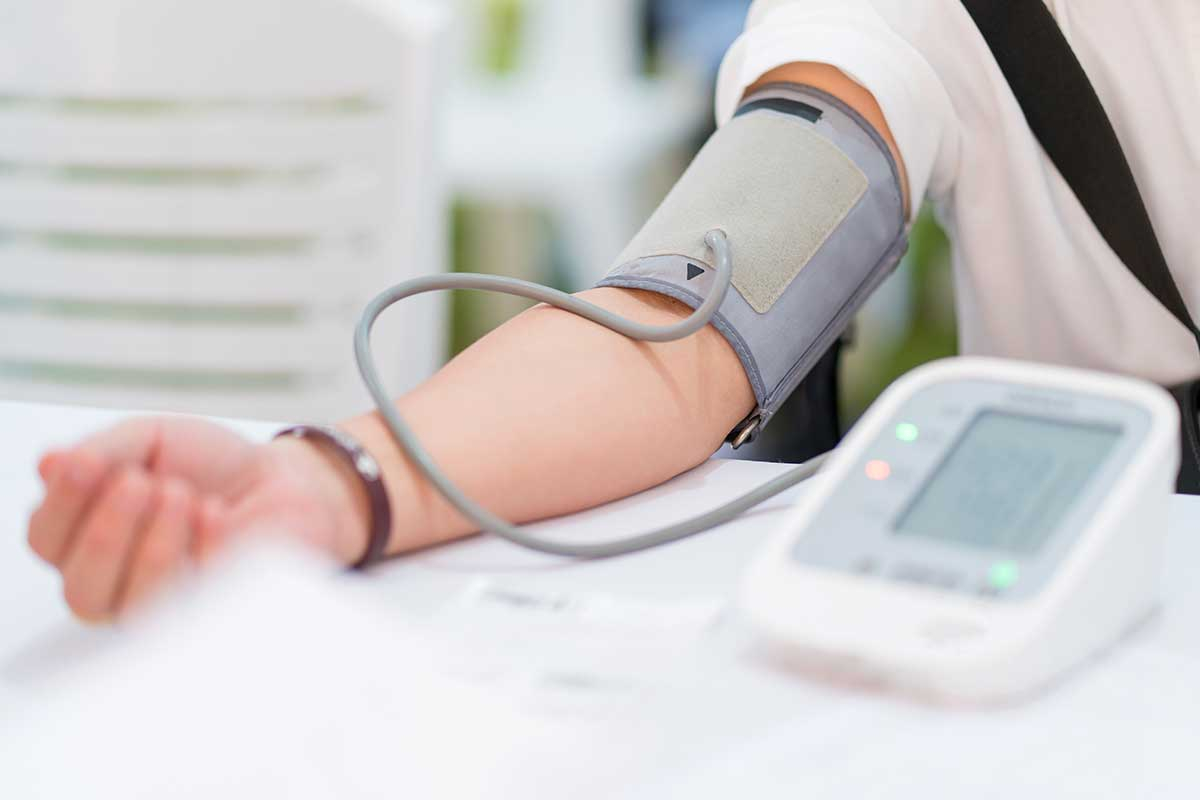Hypertension: What It Is, Symptoms, and Treatments
Hypertension, also known as high blood pressure, is a common yet often overlooked medical condition affecting millions of people worldwide. The lack of obvious symptoms can lead to late diagnosis, increasing the risk of severe complications. In this article, we will explore what hypertension is, its symptoms, and the available treatments.
What Is Hypertension?
Definition and Importance
Hypertension is characterized by a persistent elevation of blood pressure in the arteries. This condition occurs when the force exerted by the blood against the artery walls is consistently high. Blood pressure is measured in millimeters of mercury (mmHg) and is recorded in two readings: systolic pressure (when the heart beats) and diastolic pressure (when the heart is at rest). Normal values are around 120/80 mmHg. When values exceed 140/90 mmHg, the person is considered to have hypertension.
Causes of Hypertension
There are several causes of hypertension, which can be divided into primary (or essential) hypertension and secondary hypertension. Primary hypertension has no identifiable cause and tends to develop gradually over many years. Factors such as age, family history, a high-salt diet, sedentary lifestyle, and obesity can contribute to the development of this condition. Secondary hypertension is caused by underlying conditions such as kidney disease, hormonal disorders, certain medications, alcohol abuse, and excessive caffeine consumption.
Impact on Health
Hypertension is known as a "silent killer" because it can present no obvious symptoms until significant damage occurs. If left untreated, hypertension can lead to severe complications, including heart disease, stroke, kidney failure, and vision problems. Additionally, it can cause damage to blood vessels and major organs like the heart, brain, and kidneys.
Symptoms of Hypertension
Common Symptoms
Many people with hypertension do not exhibit symptoms until the condition reaches a dangerous level. However, some may experience headaches, dizziness, shortness of breath, and nosebleeds. These symptoms are not specific and generally only occur when blood pressure reaches extremely high levels.
Severe Symptoms
When blood pressure is dangerously high, more severe symptoms may include chest pain, difficulty breathing, blurred vision or other visual problems, and even the presence of blood in the urine. These symptoms indicate that hypertension may be causing significant damage to the organs and require immediate medical attention.
Regular Monitoring
Due to the absence of clear symptoms in most cases, regular blood pressure monitoring is crucial, especially for those with risk factors. Regular measurement can be done at home with automatic blood pressure devices or during routine medical visits. Early detection and proper management are essential to prevent serious complications.
Treatments for Hypertension
Lifestyle Changes
The treatment of hypertension usually begins with lifestyle changes. This includes adopting a healthy and balanced diet rich in fruits, vegetables, whole grains, and low-fat dairy products. Reducing salt intake, limiting alcohol consumption, and avoiding processed foods are important steps. Additionally, maintaining a healthy weight, exercising regularly, and quitting smoking are crucial measures to control blood pressure.
Medication
When lifestyle changes are not enough to control hypertension, medication may be necessary. There are several types of medications available, including diuretics, beta-blockers, angiotensin-converting enzyme (ACE) inhibitors, angiotensin II receptor blockers, calcium channel blockers, and others. Each medication works differently and can be combined to achieve the best result. Medication treatment should always be supervised by a doctor.
Medical Follow-Up
Regular follow-up with a doctor is essential to monitor the effectiveness of the treatment and make adjustments as necessary. In addition to measuring blood pressure, the doctor may order blood and urine tests to check kidney function and levels of potassium and sodium, among other parameters. Continuous medical follow-up helps ensure that hypertension is under control and reduces the risk of complications.
Conclusion
Hypertension is a serious condition that requires ongoing attention and management. With the right combination of lifestyle changes, medication, and medical follow-up, it is possible to control blood pressure and significantly reduce the risk of severe complications. If you are concerned about your blood pressure, consult a healthcare professional for proper evaluation and guidance.
Frequently Asked Questions
1. Can hypertension be cured?
No, hypertension cannot be cured, but it can be controlled with appropriate lifestyle changes and medication.
2. What are the risk factors for hypertension?
Major risk factors include advanced age, family history, obesity, sedentary lifestyle, high-salt diet, excessive alcohol consumption, and stress.
3. Is it possible to have hypertension without symptoms?
Yes, most people with hypertension do not exhibit symptoms, making regular blood pressure monitoring crucial.
4. What diet is recommended for people with hypertension?
A diet rich in fruits, vegetables, whole grains, and low-fat dairy products, with reduced salt intake and avoidance of processed foods, is recommended.
5. How does stress affect blood pressure?
Stress can cause a temporary increase in blood pressure and, if prolonged, contribute to chronic hypertension. Stress management techniques can help control blood pressure.
